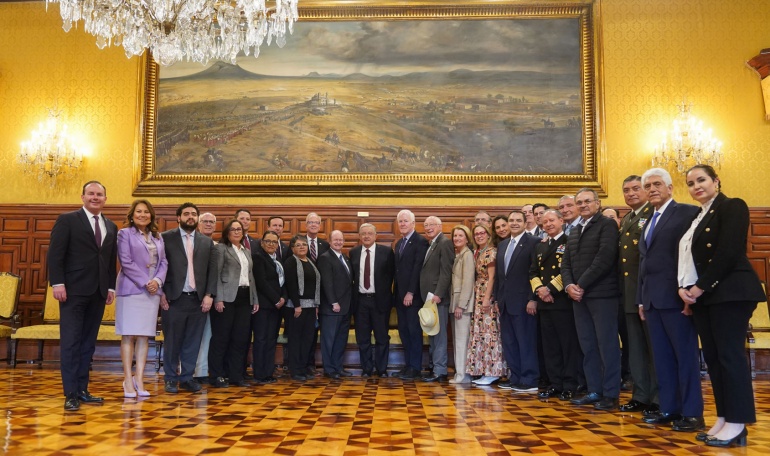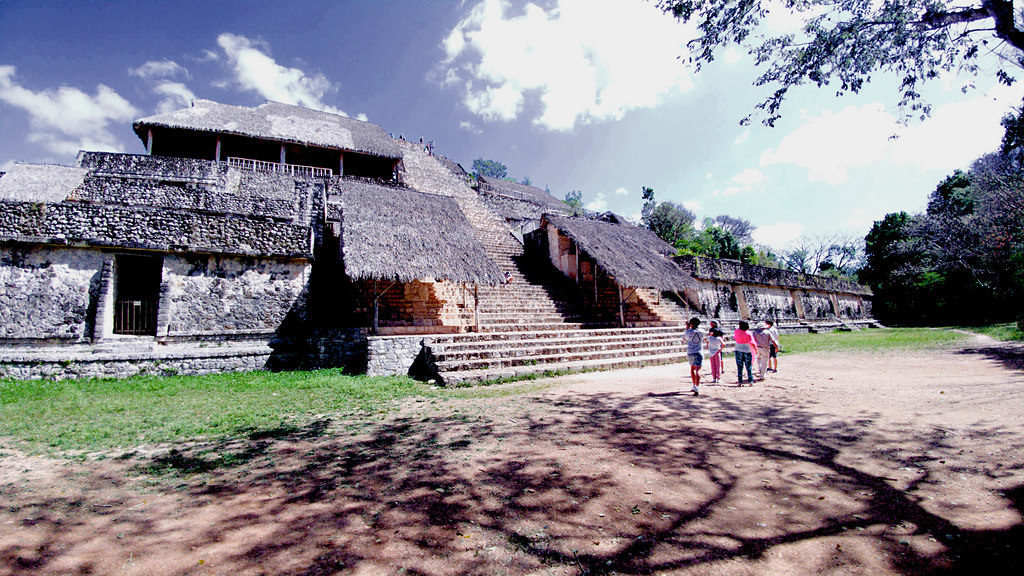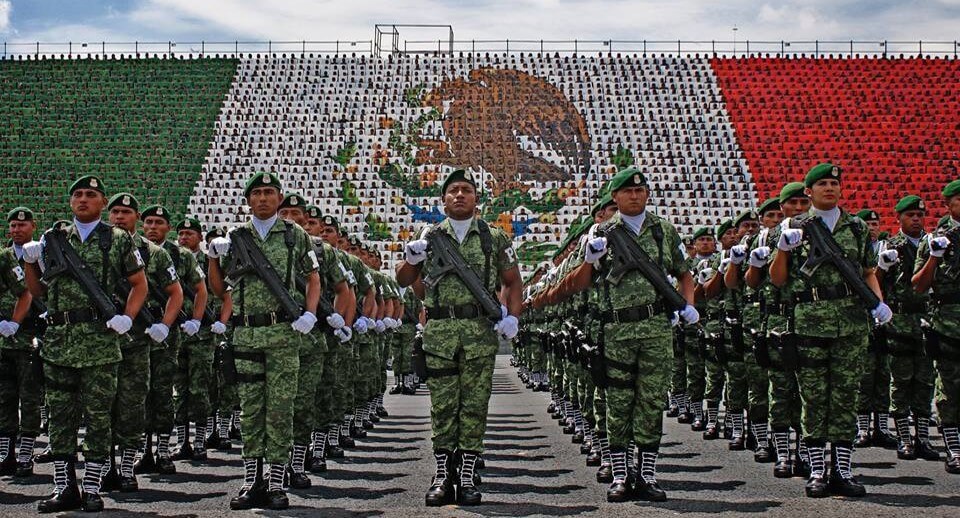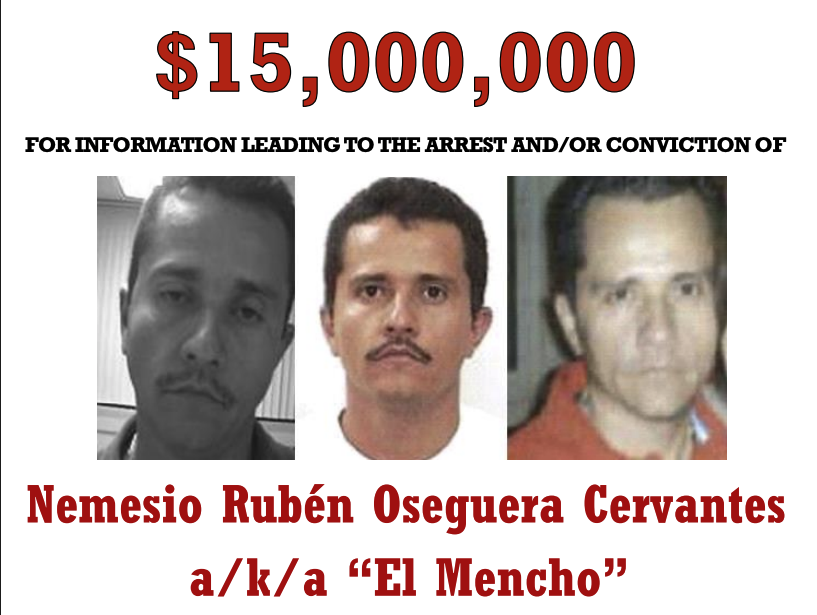Mexico City, Mexico — For the past month, Mexican President Andrés Manuel López Obrador has escalated his verbal affronts against the United States government, publicly antagonizing his neighbor and largest commercial partner, while simultaneously taking steps to protect U.S. economic and security interests within Mexico.
Leveraging his daily morning press conferences, the Mexican leader has pandered to his followers at home by depicting some factions of the U.S. government as the enemy.
AMLO’s fiery rhetoric against the U.S.
For instance, in response to the recent kidnapping and murder of U.S. tourists in Mexico, as well as the growing fentanyl crisis in the U.S., supplied by Mexican drug cartels, some Republican legislators have called for a legal initiative enabling the U.S. military to operate in Mexico to combat drug cartels.
López Obrador responded in the past weeks, accusing the U.S. of hypocrisy and interventionism, and warning of a possible boycott campaign against the Republican party in upcoming elections.
However, his aversion is not limited to the Republican party. After Secretary of State Anthony Blinken showed support to demonstrators opposing López Obrador’s recent electoral reform, the Mexican president was quick to accuse Blinken of meddling in national affairs while criticizing U.S. democracy.
“I say with all due respect to Mr. Blinken of the State Department that there is more democracy in Mexico today than in the United States,” he said at the time.
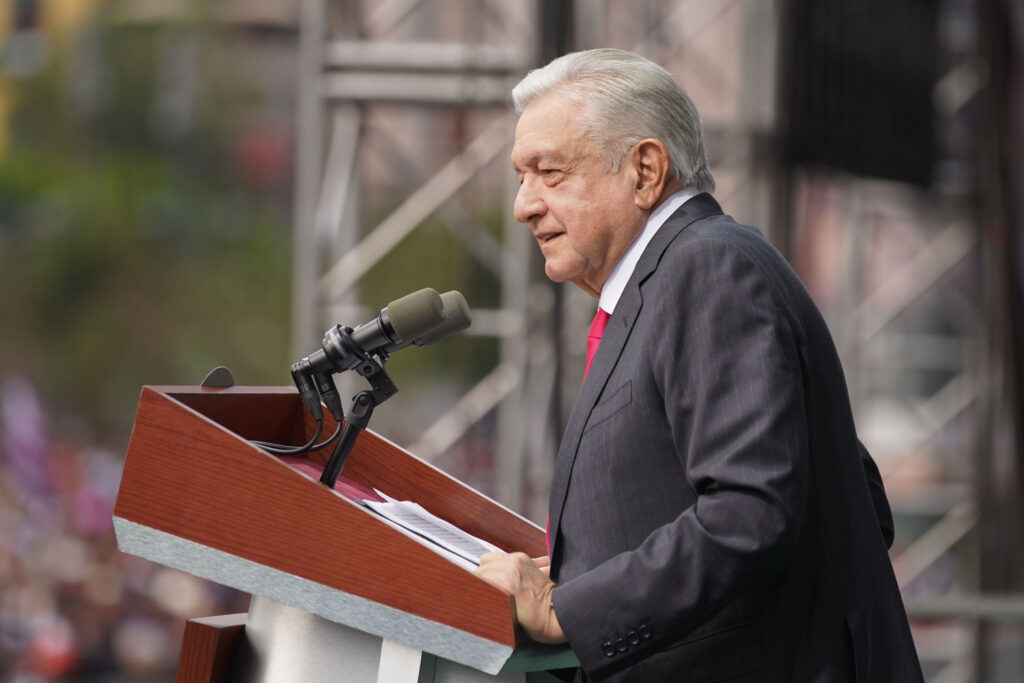
And after the State Department issued its annual worldwide report on human rights — which expressed concern regarding violence in Mexico by public officials and members of the police and the military — López Obrador clapped back, dismissing the report as slander, calling the U.S. government liars, and saying, “they think they are the government of the world.”
AMLO’s protection of U.S. interests in Mexico
Despite the fiery rhetoric, López Obrador’s remarks do not reflect how his government has continued to uphold U.S. interests within Mexico, according to Ana Vanessa Cárdenas, a Mexican international analyst based in the University of Finis Terrae in Chile.
“I would divide Andrés Manuel’s behavior and the bilateral relations with the U.S. between form and substance, ” Cárdenas told Aztec Reports. “Because in his speech, he is extremely aggressive, especially with the Biden administration, but not in practice because we have agreed to a series of situations that the United States has asked of us, such as being the third safe country, stopping the caravans of migrants, etc.”
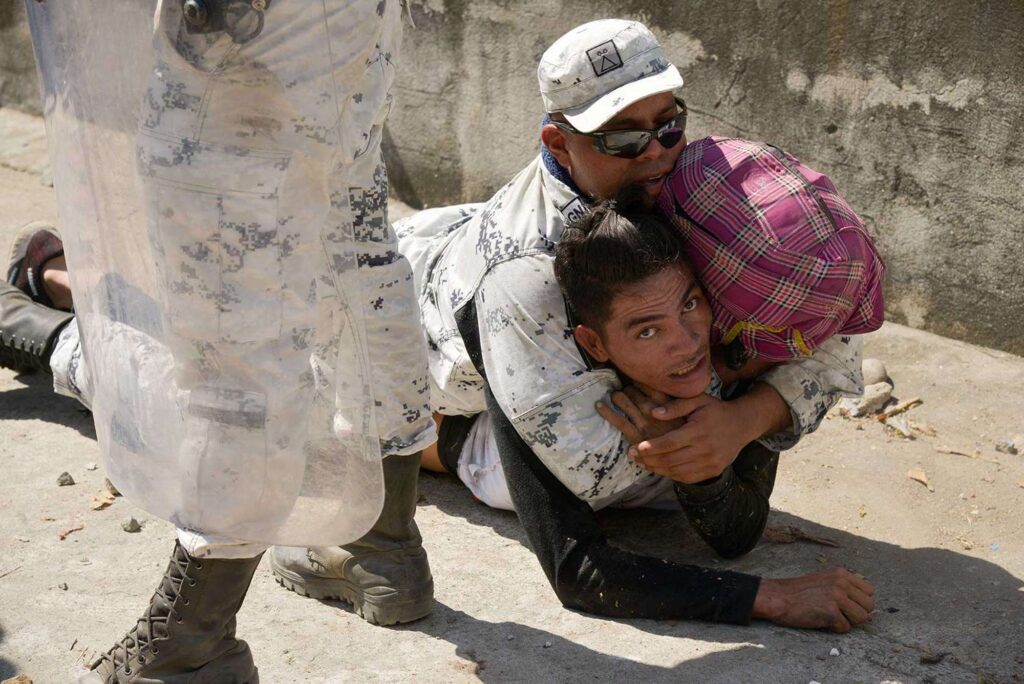
Cárdenas points out that under López Obrador, Mexico has continued to serve the interests of the U.S. government in different areas, particularly migration, where the president’s administration has willingly harbored all migrants expelled from the U.S. that are awaiting their migratory status to resolve in Mexican territory.
Following a hike in migratory flows from the global south to North America, in 2019, the administration of former President Donald Trump issued a series of legal tools to prevent migrants from entering the U.S. One of these tools was the Migration Protection Protocols (MPP), commonly known as the “remain in Mexico” policy, which former U.S. Secretary of State Mike Pompeo said was secretly approved by López Obrador’s administration while it denounced them publicly.
For the past three years, Mexico has increasingly relied on its military to enforce U.S. migration policies while receiving thousands of migrants expelled from the U.S. As a result, Mexican migrant facilities have overflowed, and human rights violations continue to rise under Mexico’s military-led strategy.
Read More: Mexico has militarized its immigration policy: Report
Migration is not the only policy in which López Obrador’s administration has used its military to help U.S. interests. According to documents from the Secretary of National Defense, leaked by the hacking group Guacamaya, Mexico and the U.S. have worked in a military alliance which envisions the Mexican military cooperating with the U.S. Northern Command.
Reportedly, the Mexican armed forces have participated in drills, meetings, and intelligence and technological exchanges with the idea that, by 2030, Mexico will achieve bilateral military cooperation with the United States for security in North America and peacekeeping tasks worldwide.

Despite López Obrador’s rejection of U.S. military intervention in Mexico, the country’s armed forces already seem to be rooted in a joint effort.
“For Andrés Manuel, who always likes to speak to his followers, this threat of military intervention in Mexico comes like a ring to his finger to create a common base of defense against an enemy that is the United States, even if in the end, Mexicans continue to cooperate with the United States, continue to facilitate the terrain to avoid pressure, especially in the commercial sphere,” said Cárdenas.
Mexico’s biggest trading partner
In 2022, trading between Mexico and the U.S. reached record highs,amounting to around USD $780 billion, growing 17% from 2021, according to Mexico’s Foreign Secretary.
Mexico has become the second largest commercial trading partner to the U.S., contributing to the manufacturing and transporting of key goods such as data processing units, auto parts, and vehicles.
In addition, Mexico is always courting U.S. capital investments, such as the recently announced Tesla plant in the northern state of Nuevo León, which has been lauded as achievements by López Obrador’s administration.
This despite López Obrador’s initial refusal to allow any major manufacturing plant to be built in Nuevo León due to intense, sustained droughts that have plagued the region. He capitulated, however, and allowed the USD $5 billion project to move forward, saying that he talked to Tesla CEO Elon Musk about how “hard working and responsible” Mexican workers are.
Read More: Elon Musk’s bet on nearshoring Tesla production in Mexico
Cárdenas argues that the Mexican government offers investors like Musk advantages that go above and beyond the virtues of Mexican workers.
“Both direct and indirect U.S. investment is fundamental, as the proximity we have geographically and the population and cheap labor we provide,” said Cárdenas. “And it must be said the United States also benefits from the lack of clear regulations in Mexico. Ultimately, Mexico offers them these warranties and complies with their requests.”
Shoring up U.S. supply chains
On March 21, U.S. special climate envoy John Kerry visited Mexico’s southeast to oversee the progress of one of López Obrador’s major — if often overlooked — signature projects: The interoceanic corridor of Mexico’s Isthmus of Tehuantepec.
The project, which aims to refurbish a 186-mile railroad track, cuts across the states of Veracruz, Tabasco, Oaxaca, and Chiapas, connecting the Gulf of Mexico with the Pacific Ocean.
Along the corridor, AMLO’s administration is set to establish 10 industrial parks, four dedicated to producing wind energy, financed with U.S. capital.
At a press conference, López Obrador announced that investors would be given a tax relief credit for allocating funds to the industrial parks.
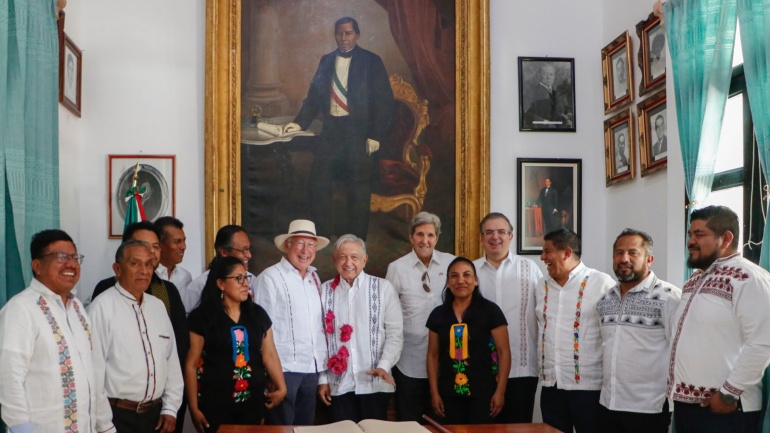
With the corridor estimated to transport 1.4 million containers annually, AMLO is effectively launching an alternative to the Panama Canal. The new transport lines could prove advantageous to U.S. supply chains, especially at a time when China’s planned canal through Nicaragua is faltering as investors are failing to come up with funds.
Indigenous communities living in the path of the railroad project have denounced the controversial corridor, which they say is an imperialistic effort to reorganize the southeastern region of Mexico to benefit U.S. commercial interests, enabled by López Obrador’s administration.
Ahead of Kerry’s visit, on March 14, different indigenous communities issued a statement denouncing the project that they said endangers the livelihood of 12 indigenous peoples living in the region.
“The neo-colonization led by the United States on the Isthmus of Tehuantepec will imply the commercialization, speculation, and disappearance of everything that constitutes the territory, under mountains of ash and scrap thrown up by the Poles of Development for Wellbeing,” the statement read.


